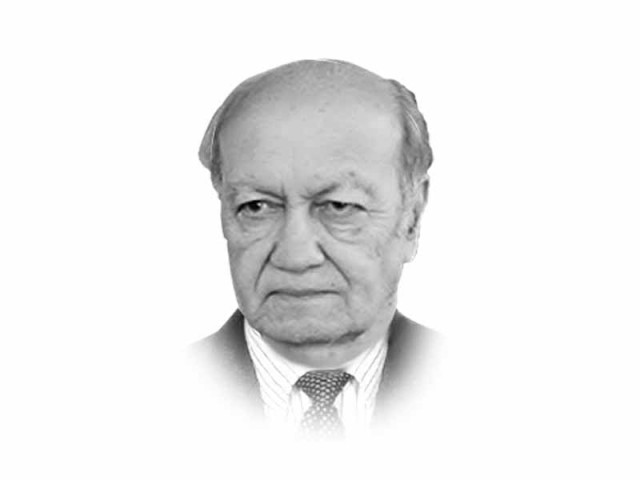Pakistan-US ties — the way forward
Pakistan, US can minimise policy differences if they show greater understanding of each others’ points of view.

There is a widespread belief in Pakistan that the US is only interested in a transactional relationship that will last until its interest in Afghanistan remains. A more fundamental issue is whether Washington has benign or Machiavellian objectives in the region. There are many, even among the intellectual community, who think that the US is interested in deliberately destabilising Pakistan (and Afghanistan) to advance its broader strategic goals. More importantly, the widespread belief that the US plans to denuclearise Pakistan drives the security community paranoid.
Another major factor that generates insecurities within Pakistan is the Indo-US strategic partnership and the deep converging interests of the two countries in Afghanistan and the region. With the US allowing greater space to India in Afghanistan, the Pakistani establishment conjures up the worst-case scenario of a potential double encirclement by India. The India factor looms large in Pakistan’s strategic calculus.
On the US side, the distrust is equally disturbing. It accuses Pakistan of duplicity — running with the hare and hunting with the hounds. For Admiral Michael Mullen to testify before the US Senate — a few days prior to his retirement — that the Haqqani network is the veritable arm of the ISI, only reflects the deep schisms and policy differences that exist.
Mutual interests, therefore, lie in removing the differences and apprehensions through candid and rational dialogue.
First, Pakistan is already facing huge challenges of instability due to rising militancy, mushrooming of radical forces, poor economic growth, corruption, institutional in-fighting and the worsening law and order situation. Surely, this is not a foreign (or US) inspired phenomenon. It is very much homegrown and the cumulative result of years of policy and governance failings. In any case, what does the US stand to gain by destabilising Pakistan? On the contrary, its interest lies in stabilising the region to ensure that there is no repeat of 9/11. Moreover, Washington’s economic and strategic interests — exploitation of natural resources and enhancing influence in a geostrategic area — are best served when there is stability. As regards the nuclear factor, Washington must have contingency plans for a worst-case scenario of Pakistani nukes falling in the hands of terrorists. This is very different from assuming that the US is intrinsically after Pakistan’s nuclear capability and is planning to nullify it.
On the other hand, the US allegation that Pakistan supports and provides protection to the Haqqani network and other militant groups has no valid basis. The reality is that the Pakistan military justifiably feels that any operation in North Waziristan can only be successful if there is a joint operation from both sides of the border. Furthermore, the GHQ is justified in emphasising that at a time when the US is withdrawing the bulk of its forces from Afghanistan, it is prudent to focus on negotiations rather than on opening new fronts. It is also not correct to give disproportionate importance to the Haqqanis. Moreover, in Pakistan, the right wing and religious parties who are opposed to the US presence in Afghanistan value the resistance offered by the Taliban and their associates to the US occupation, which neither the government nor the military can overlook.
Pakistan justifiably feels that Afghanistan and the US fail to own up to their failings in managing the border. How many militants of the Haqqani group have been killed or captured crossing the 200-km distance between the Pakistan-Afghan border to Kabul? Will the problems of Afghanistan go away once the Haqqani group is eliminated? The reality is that there is flow of militancy from both sides of the border and a cooperative approach would be more helpful than blaming Pakistan.
Pakistan has been a victim of terrorism and Washington overlooks this. The US indifference to Pakistan’s territorial integrity is also deeply resented. In the past, drones enjoyed tacit approval of the Pakistani military and civilian leadership but are now no more politically acceptable. Their use should only be permissible if it is a joint intelligence and military operation.
In the final analysis, Pakistan and the US can minimise their policy differences if only they show greater understanding of each others’ points of view and reconcile their policies that generate mutually beneficial interests. The present tangible improvement in relations provides that opportunity.
Published in The Express Tribune, July 17th, 2012.













COMMENTS
Comments are moderated and generally will be posted if they are on-topic and not abusive.
For more information, please see our Comments FAQ